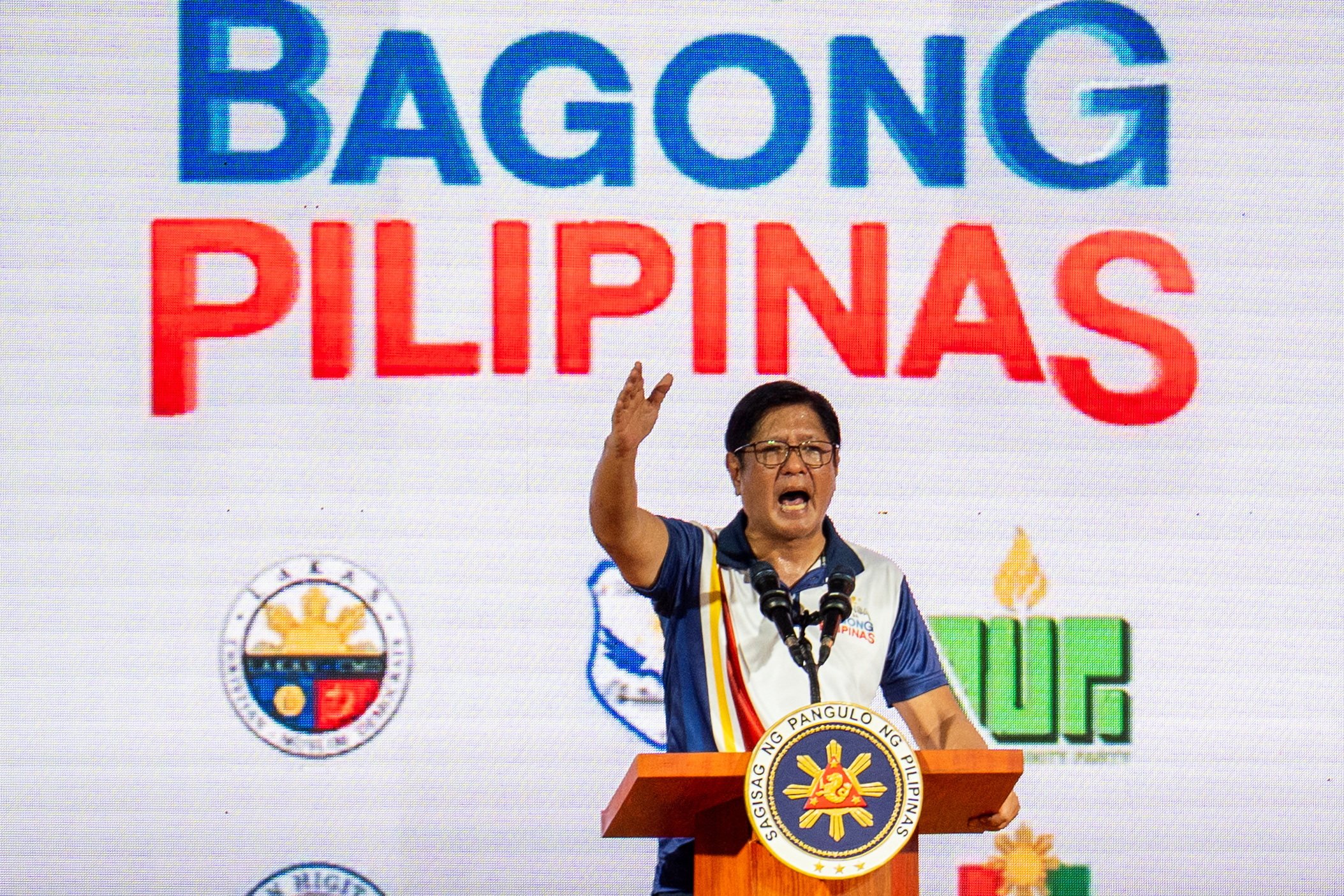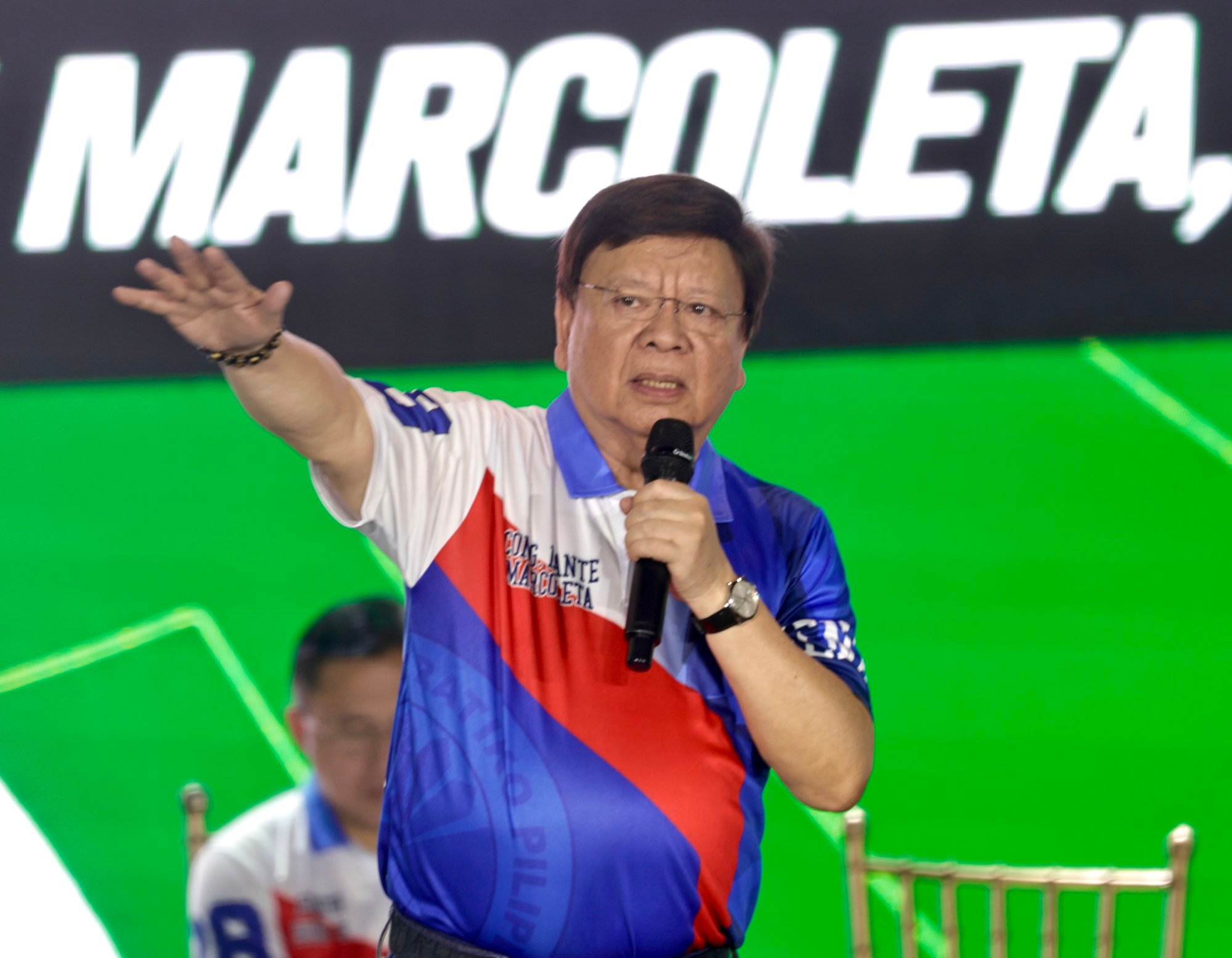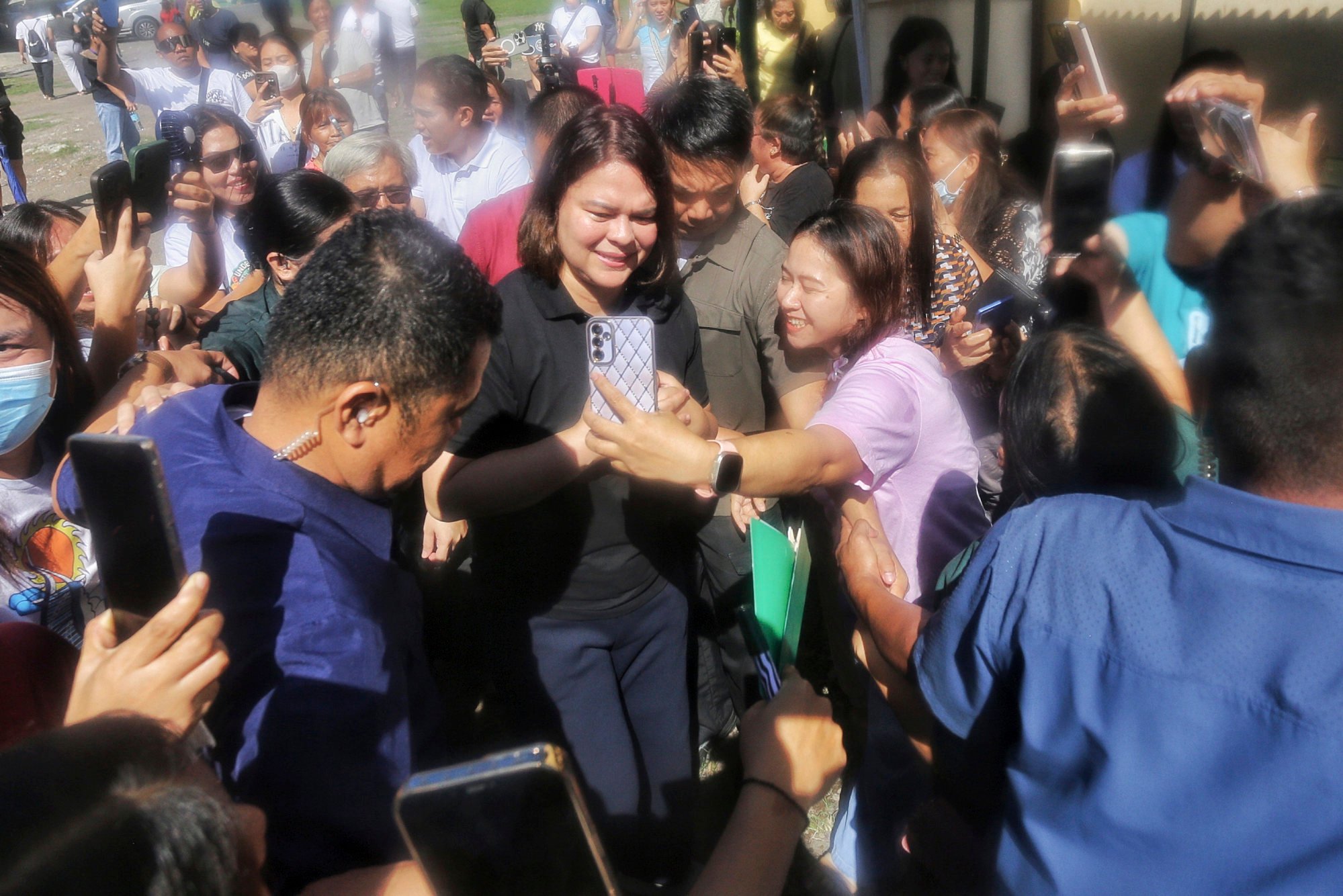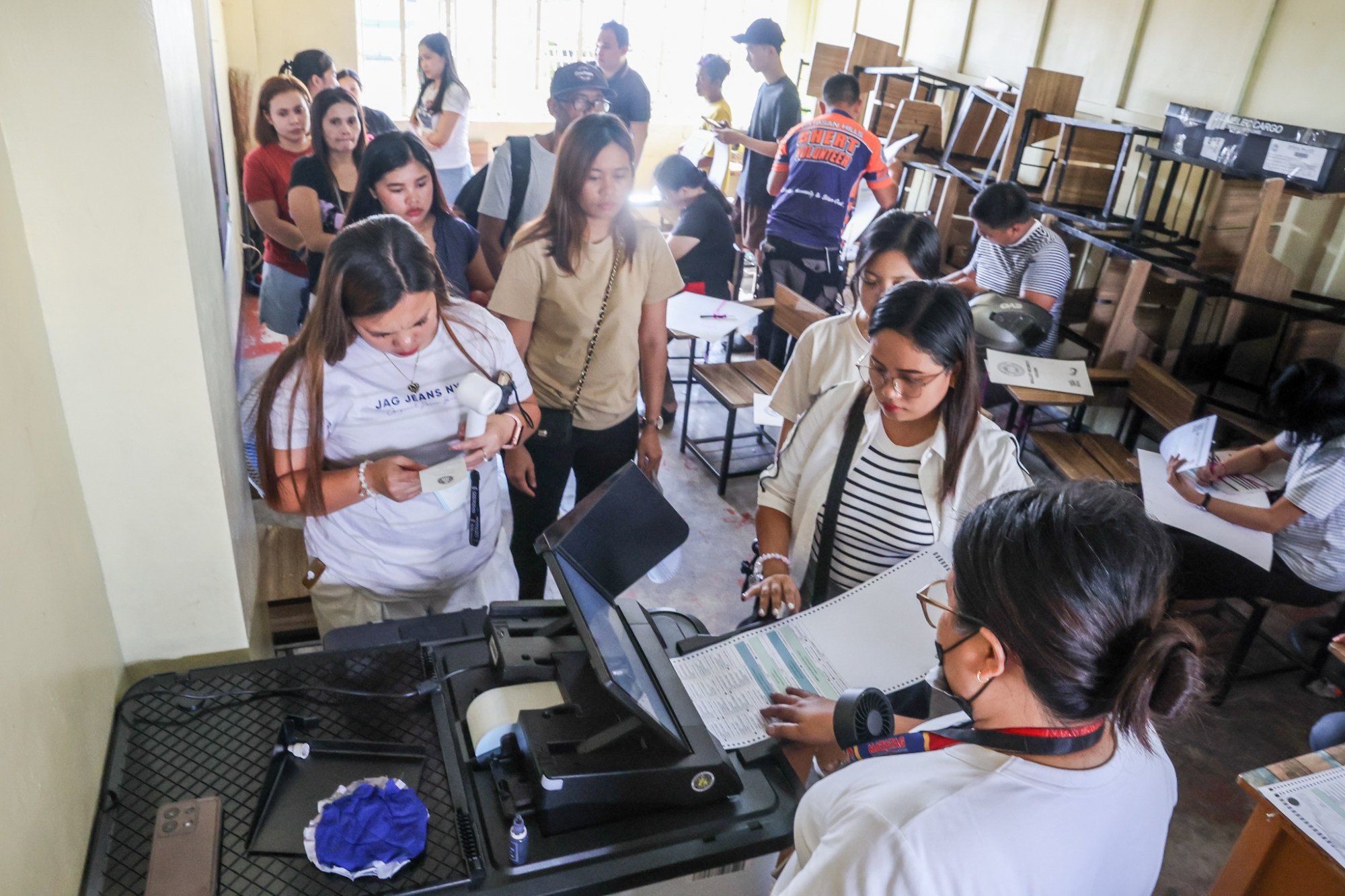Philippine midterm elections: Marcos set for political ‘thrashing’ at hands of youth voters
Eventual results could weaken president’s influence in Congress, undermine efforts to impeach his deputy and reshape 2028 presidential race

A surprise surge of youth voters has upended the Philippines’ midterm elections, delivering what analysts have described as a political “thrashing” for President Ferdinand Marcos Jnr and complicating the path forward for his administration.
With only five of Marcos Jnr’s remaining 10 Senate candidates poised to win seats – after two of the original 12 switched allegiances at the last minute – observers say the eventual results could weaken his influence in Congress, undermine efforts to convict Vice-President Sara Duterte-Carpio in an impending impeachment trial, and reshape the battlefield for the 2028 presidential race.
“This is probably one of the most dramatic late election developments I have ever seen, since virtually all the latest surveys failed to predict this outcome,” said Barry Gutierrez, a former lawmaker and spokesman for ex-vice-president Leni Robredo.
Historian Manolo Quezon described the outcome so far as “the fourth worst” midterm showing for a sitting president since 1938. Although the vote appears evenly split – with five candidates each from the Marcos and Duterte factions projected to take Senate seats – the results so far suggest a wider public disaffection with the president.
The tallies are from partial, unofficial results obtained from the “central server” controlled by the Commission on Elections (Comelec), which has said final confirmation of the winners would be due by the weekend.
Among the likely victors personally endorsed by Duterte-Carpio are returning senators Ronald “Bato” Dela Rosa and Imee Marcos, as well as Rodante Marcoleta – a sitting congressman – and Congresswoman Camille Villar. The vice-president’s endorsement was seen as crucial to their success.
Villar and Imee Marcos, the president’s sister, had initially appeared on Marcos Jnr’s official slate but switched allegiance to Duterte-Carpio’s side shortly before the election.

Prominent figures backed by Marcos Jnr, while still in the running, appear to have fallen short of expectations. Erwin Tulfo – once tipped to top the polls – slipped to fourth place, trailing Dela Rosa. Incumbent senators Pia Cayetano and Lito Lapid, along with former Senate heavyweights Tito Sotto and Panfilo “Ping” Lacson, could still make the cut.
In a surprising twist of events, two political “outliers” – former Liberal Party senators Bam Aquino and Francis “Kiko” Pangilinan – appeared to have secured Senate seats, a result Quezon called “an additional repudiation” of the president, noting that both men were known critics of the Marcos family.
“These two are in no way perceived to be pro-Marcos and won with the help of many anti-Marcos voters,” he said.
Gutierrez described the inclusion of Aquino, Pangilinan and Marcoleta among the top 12 vote-getters – popularly known as the Senate’s “Magic 12” – as the “three most surprising results” of the race.
In contrast, well-established figures from the president’s slate such as Makati Mayor Abby Binay and Senator Ramon “Bong” Revilla Jnr failed to make the cut, despite their name recognition and political machinery.
“The admin slate essentially received a 5–7 thrashing in the Senate elections. That’s a terrible result for a midterm election for an incumbent … a clear repudiation of Bongbong Marcos,” Gutierrez said.

‘Uphill’ impeachment battle?
The increase in the number of senators partial to Duterte-Carpio in the upper chamber could have immediate consequences for her impeachment trial. Analysts say this would weaken Marcos Jnr’s ability to marshal support in the Senate – and signal shifting political loyalties ahead of 2028.
Once allies, Marcos Jnr and Duterte-Carpio ran on a joint ticket in 2022. Their alliance fractured amid policy disputes and personal clashes, culminating in Duterte-Carpio’s impeachment by the House of Representatives in February. She faces allegations of misusing confidential funds and making threats against the president and other officials.
The case is now set to be tried in the Senate – where the erosion of Marcos Jnr’s influence following the midterm polls could make it far harder to secure a conviction.
“It’s a big loss for the Marcos administration,” political risk analyst Ronald Llamas told This Week in Asia.
He predicted that if Marcos Jnr was unable to recoup from the loss immediately, “it will make him an early lame-duck president”.
Llamas said Marcos Jnr “wasn’t able to weaponise” issues such as the South China Sea conflict and pervasive anti-China sentiment of the voters, the crimes of humanity case against former president Rodrigo Duterte in The Hague and the corruption cases for which Duterte-Carpio was impeached and would soon face a Senate trial.
The president was also unable to deliver on his 2022 election promise of lowering the price of rice to 20 pesos per kilogram and the promises he made in two State of the Nation Addresses to destroy the agricultural cartel that was raising food prices and arrest those doing it.

“So the government is seen not only to be weak, to be incompetent and corrupt and this took its toll in the elections,” said Llamas, founding chair of the Galahad Consulting Agency.
Going by the results so far, Llamas said ousting Duterte-Carpio through an impeachment trial would be “an uphill battle” for the president since most of the senators would be weighing which side they should choose come 2028.
Return of the ‘pink wave’
The anti-Marcos sentiment appears to have continued in the House of Representatives, with two top party-list groups – the Akbayan Party led by opposition senator Risa Hontiveros and the Duterte Youth – set for victory, observers note.
Former senator Leila de Lima, whom Duterte had jailed for six years on trumped-up illegal drugs charges, also looks poised for a stunning comeback as the representative of Mamamayang Liberal party-list group, the citizen arm of the Liberal Party opposition.
Both Llamas and Gutierrez see these unexpected victories as the return of “the pink wave”, which in 2022 was led by then opposition vice-president Robredo, who used pink as her campaign colour to represent the groundswell of support for a “shared aspiration” for good governance.
In this election, “the pink was not in the running and suddenly they’re in the middle of the battle. I was surprised”, Llamas said. “The youth delivered. We always underestimated Generation Z and the millennials, even in surveys.”

According to Comelec, nearly seven out of every 10 registered voters are aged between 28 and 44, or millennials. But the Gen Z voters (below 28 years old) now number 21 million, with 7 million of them voting for the first time on Monday.
Quezon said “showbiz” candidates fielded by Marcos Jnr, such as veteran actors Phillip Salvador and Revilla, “cannot bank on a new generation of non-existent fans” like the Gen Z.
The election also exposed the limits of conventional polling. “One of the main losers in this election are the survey firms,” Llamas said. “Most of them were wrong.”
Cleve Arguelles, president of WR Numero Uno, acknowledged in an interview that his survey firm might have “under-represented” the Gen Z votes in its polling.
As to the impact of all these on the 2028 presidential polls, Quezon said: “Marcos and Duterte have the potential of cancelling each other out, leaving an opening for the middle forces [identified as the pink wave] to squeak through.”
In confirmed upsets, Duterte scored a landslide win in Davao City over Marcos Jnr’s candidate for mayor, Karlo Nograles. Duterte’s son, Sebastian, won as vice-mayor.
Senator Cynthia Villar, the third-richest woman in the Philippines along with her husband Manuel, according to the 2025 Forbes rich list, lost her bid to become mayor of her home city, Las Pinas. She had been expected to win, given her family’s political dominance in the area.
Robredo also won as mayor of Naga City by a landslide, while boxing world champion Manny Pacquiao, running under Marcos Jnr’s slate, suffered a shock defeat.